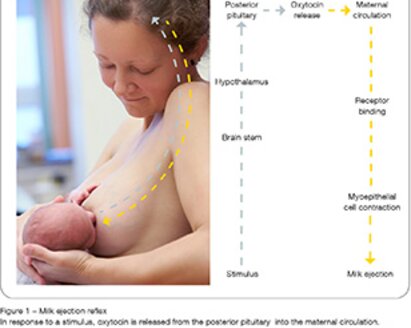Are we doing enough to help mothers achieve their breastfeeding goals?
“Will I be able to breastfeed?” is a question many pregnant women ask themselves but may hesitate to voice to their midwife or doctor. Yet for expectant mothers who wish to breastfeed it’s an essential topic to address and discuss early in pregnancy.
The reality seems to be straightforward: guidelines exist on how to establish breastfeeding and an adequate milk supply for healthy mothers and babies after labour and birth. There are also lactation recommendations to help parents to best provide their small, sick, and preterm newborn with breast milk.
Mothers with lactation risk factors
However, the reality is not always so simple. Because there are also mothers with known risk factors for lactation. Mothers who have preexisting health, pregnancy, birth, or newborn-related risk factors for suboptimal lactation or whose babies may struggle to breastfeed early and effectively after birth. They might have difficulty breastfeeding in the first few days after giving birth, which can lead to them not producing enough milk later to achieve their breastfeeding goals. For them, prenatal counselling is especially critical to ensure that they have the knowledge, resources, and support needed to achieve their breastfeeding goals.
Early identification of these mothers is essential as it allows care teams to proactively address potential challenges in good time.
The need for clinical guidelines
How can healthcare providers best manage women with lactation risk factors and give them the support they need? Internal guidelines tailored to the needs of these pregnant women and mothers will empower care teams to act quickly and effectively. This would not only improve care for these mothers and their babies but also contribute to increased overall breastfeeding rates. Unfortunately, clinical guidelines addressing this group of mothers with preexisting medical, pregnancy, birth, or newborn-related lactation risk factors remain scarce – even in scientific literature.
Shining a spotlight on these overlooked mothers
Recognising this gap, an international team of midwives, led by a PhD lactation nurse, conducted an extensive literature review. First, they identified the most significant risk factors that can disrupt normal physiologic lactation. They then collaborated to develop an evidence-based perinatal breastfeeding plan and clinical pathways designed to guide healthcare teams in assessing, caring for, and educating families at risk of low milk supply.
Their findings and solutions have been published in two peer-reviewed papers that are available in open access and linked below. The publications aim to raise awareness of this important topic and to encourage midwives and healthcare professionals to adopt proactive strategies. Because by supporting timely and effective breastfeeding for mothers with lactation risk factors, more newborns can receive more breast milk, and more families can achieve their long-term breastfeeding goals.
Meet the contributors
The team that wrote the two papers includes the following leading experts in lactation and midwifery from around the world:
- Professor Diane L. Spatz – Chair, Expert Panel on Breastfeeding, American Academy of Nursing (USA)
- Salomé Alvarez Rodríguez – Former President of the Spanish Federation of Midwife Associations (Spain)
- Sarah Benjilany – Midwife and Psychologist (France)
- Barbara Finderle – Vice-President Croatian Chamber of Midwives (Croatia)
- Aleyd von Gartzen – former Federal Representative for Breastfeeding and Nutrition of the German Midwives Association (Germany)
- Ann Yates, Former Midwife Advisor – International Confederation of Midwives (New Zealand)
- Assistant Professor Jessica Brumley – President American College of Nurse-Midwives (USA)
Read the publications
Paper 1: Learn about the key lactation risk factors that can disrupt normal physiological lactation and the need for proactive lactation management to ensure long-term milk production.
Go to publication
Paper 2: Discover how you can establish robust, standardised lactation-specific clinical pathways by implementing evidence-based perinatal operational breastfeeding plans to help mothers with lactation risk factors to achieve timely secretory activation and to meet their breastfeeding goals.
Go to publication
Together, we can make a difference
Start the conversation early! Talk to women prenatally about potential impacts on breastfeeding and provide tailored support to initiate lactation effectively. By ensuring that every mother has the knowledge, resources, and support to achieve her breastfeeding goals, we can help give every baby the healthiest possible start in life.


















